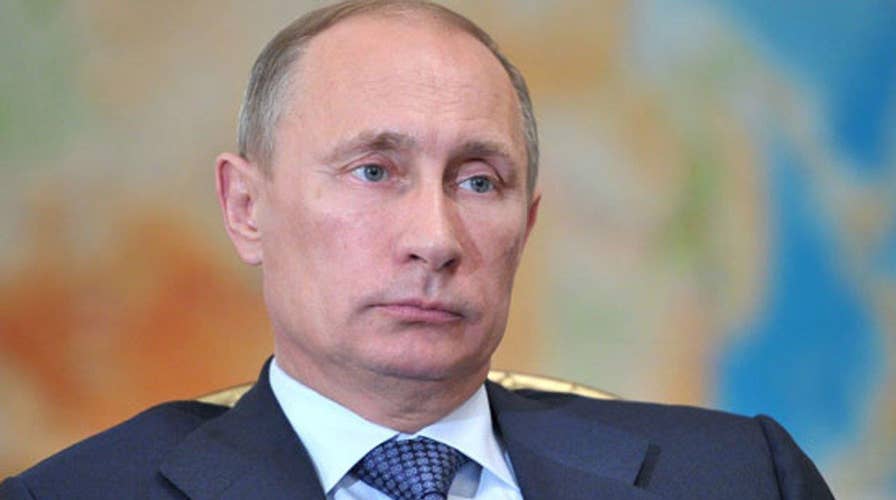Growing concerns over Russian interference with US election
Correspondent Kevin Corke reports from Vientiane, Laos
MOSCOW – Russia's justice ministry has branded Russia's only major private pollster a "foreign agent," a stigma that could lead to its closure.
The ministry issued a statement Monday evening saying that the Levada polling agency has been listed as a "foreign agency" after a snap inspection found some irregularities.
Following major protests against his rule in 2011 and 2012, Russian President Vladimir Putin signed a law that requires all NGOs receiving foreign funding and found to engage in vaguely defined "political activity" to register as "foreign agents." Those who fail to comply face fines and potential closure. Many organizations have said the stigma of "foreign agent," which rings like "spy" in Russian, would make it impossible for them to work in the country.
The decision comes less than a week after the respected pollster founded by and named after the late sociologist Yuri Levada published its latest election survey, indicating a drop in the ruling party's ratings. Russia holds a parliamentary election on Sept. 18.
Levada on Tuesday vowed to contest the ruling and expressed its dismay, saying that the ministry had not given it a chance to present its own case before issuing the decision.
"Placing an organization on a foreign agent list does not put an end to its activities, that's why we will continue our work," the Interfax news agency on Tuesday quoted Levada's deputy director Alexei Grazhdankin as saying. "That said, the foreign agent label can have a bad impact on our activities, on the perceptions of those polled."
U.S. State Department spokesman Mark Toner hailed Levada's work and said the Russian government has now designated 141 organizations as so-called foreign agents.
"They've targeted non-governmental and business associations working to protect the environment, fight the spread of HIV, and promote transparency, good governance and freedom of expression," he said.
"Polling is — as we all know here in the U.S. — an important tool in any country that seeks to live by democratic standards of openness, accountability in government, and freedom of scientific inquiry," Toner said. "These are principles Russia should seek to promote, we believe, and not silence."
The other two major Russian pollsters are state-owned and their surveys on political parties and politicians often differ significantly from what Levada research shows.








































